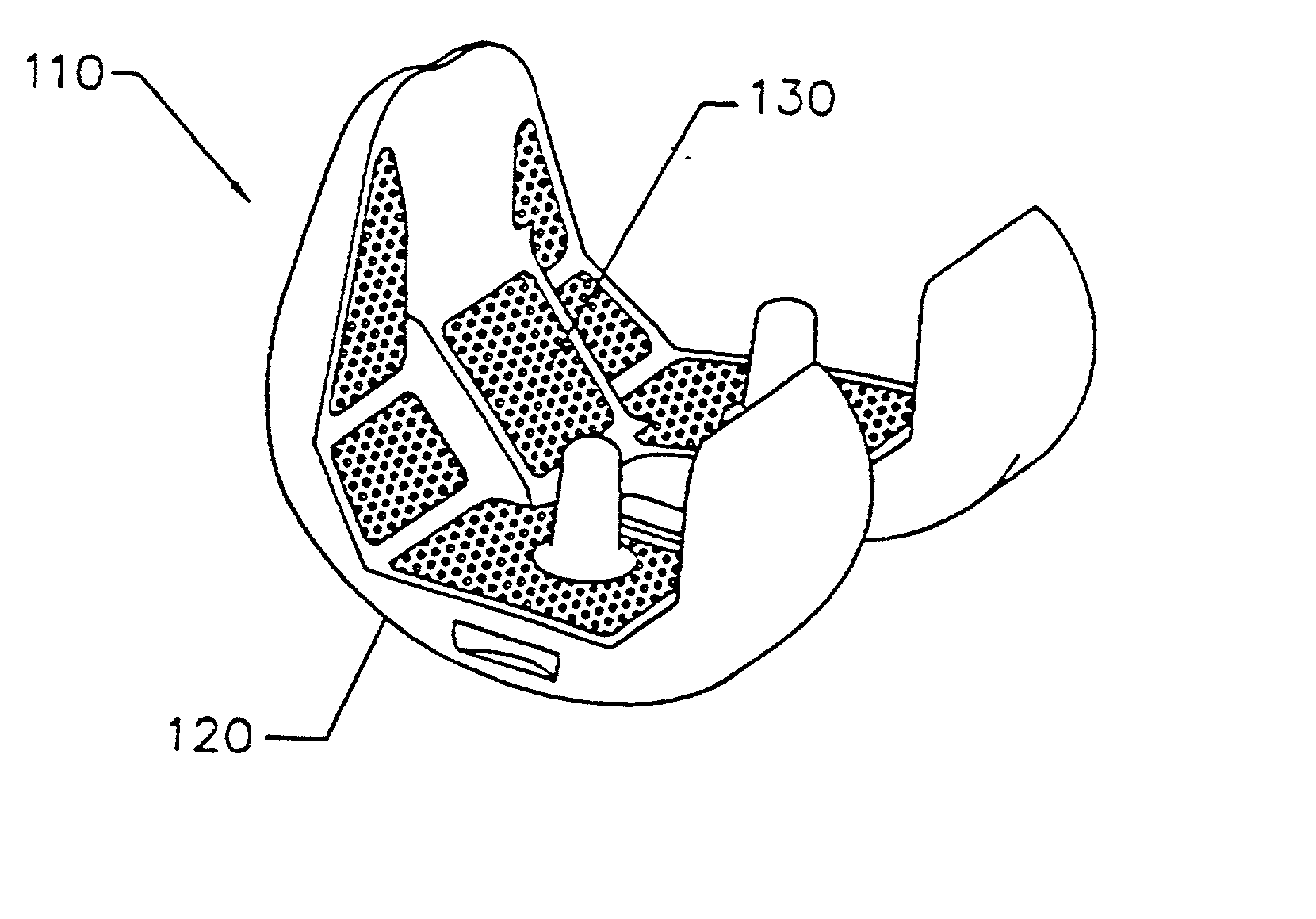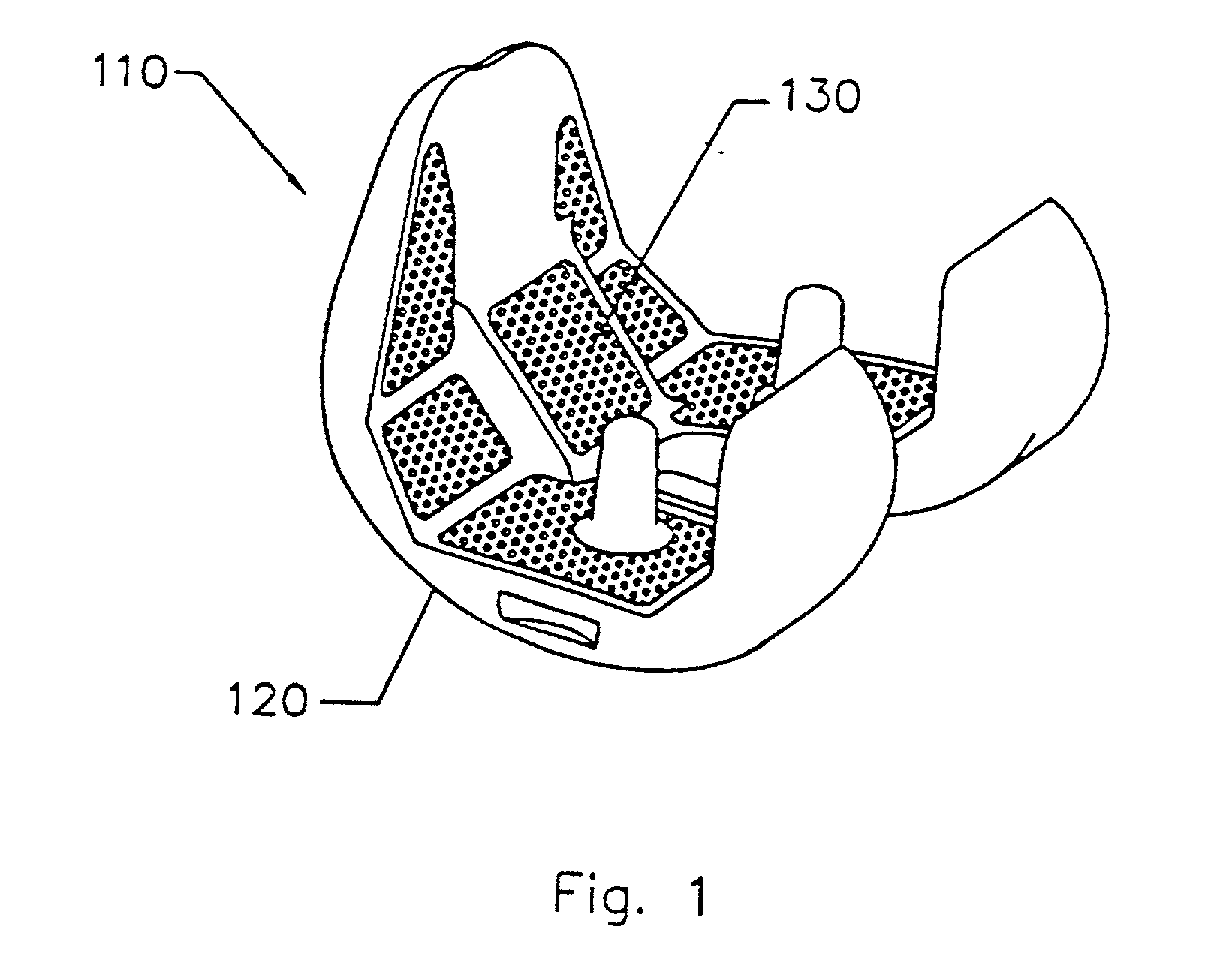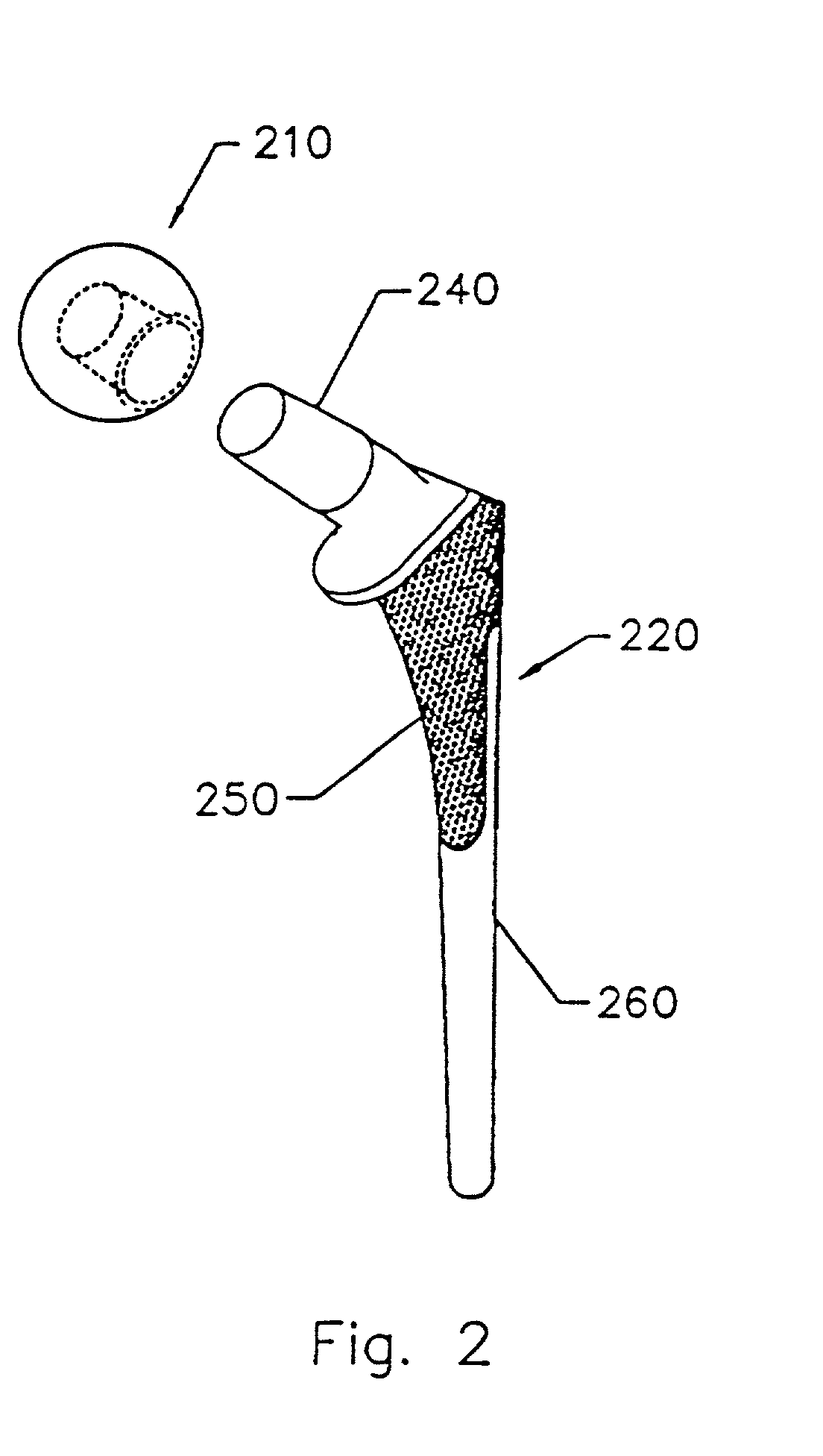Implant with composite coating
a composite coating and implant technology, applied in the field of in vivo implants, can solve the problems of high cost and/or technical complexity, biocompatible materials are often soft or brittle, and the best substrate materials are not the best materials to be in contact with living tissu
- Summary
- Abstract
- Description
- Claims
- Application Information
AI Technical Summary
Benefits of technology
Problems solved by technology
Method used
Image
Examples
Embodiment Construction
[0022] The invention and the various features and advantageous details thereof are explained more fully with reference to the nonlimiting embodiments that are illustrated in the accompanying drawings and detailed in the following description. Descriptions of well known components and processing techniques are omitted so as not to unnecessarily obscure the invention in detail.
[0023] The context of the invention is providing an implant to be positioned in vivo during surgery, especially orthopedic surgery to replace a joint, such as, for example, a knee joint or a hip joint. Thus, the implant can be used in a method for orthopedic surgery that includes surgically positioning the implant within a vertebrate in need thereof. If bone growth is facilitated, the implant can be termed part of an osteoconductive process that includes contacting a bone under in vivo conditions with the implant.
[0024] Referring to the drawings, a detailed description of preferred embodiments of the invention i...
PUM
| Property | Measurement | Unit |
|---|---|---|
| thickness | aaaaa | aaaaa |
| thickness | aaaaa | aaaaa |
| depth | aaaaa | aaaaa |
Abstract
Description
Claims
Application Information
 Login to View More
Login to View More - R&D
- Intellectual Property
- Life Sciences
- Materials
- Tech Scout
- Unparalleled Data Quality
- Higher Quality Content
- 60% Fewer Hallucinations
Browse by: Latest US Patents, China's latest patents, Technical Efficacy Thesaurus, Application Domain, Technology Topic, Popular Technical Reports.
© 2025 PatSnap. All rights reserved.Legal|Privacy policy|Modern Slavery Act Transparency Statement|Sitemap|About US| Contact US: help@patsnap.com



